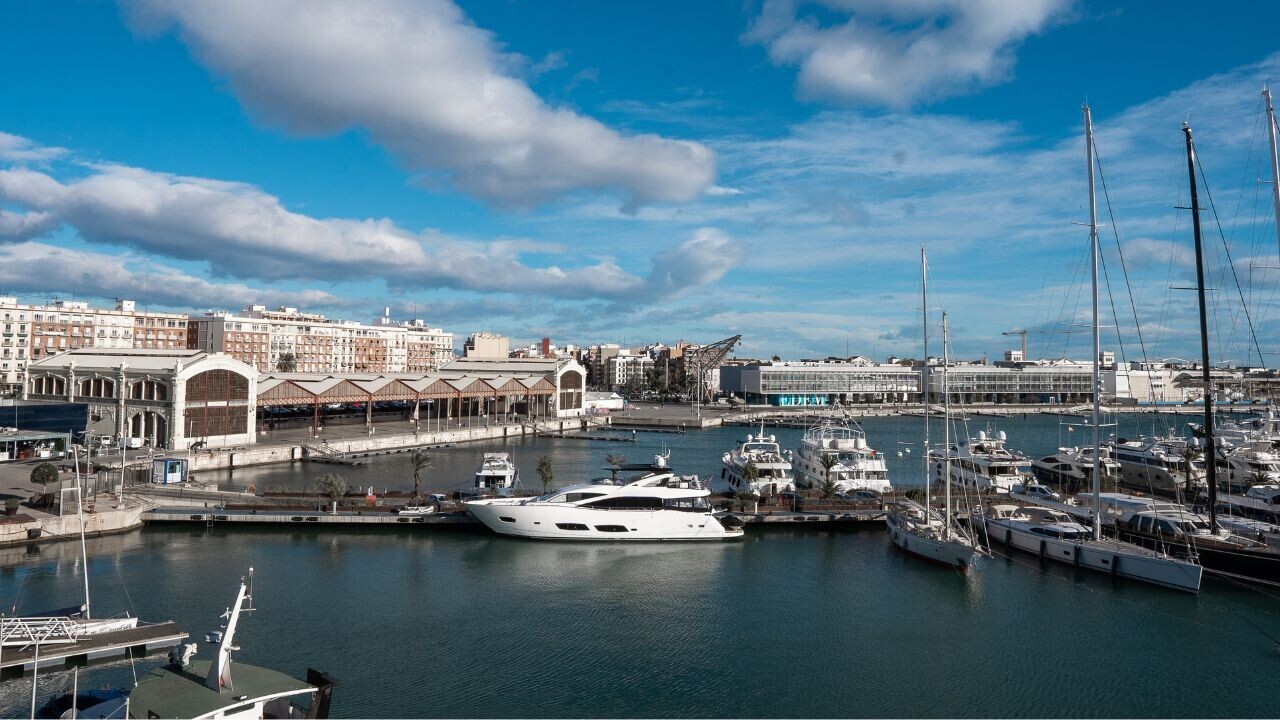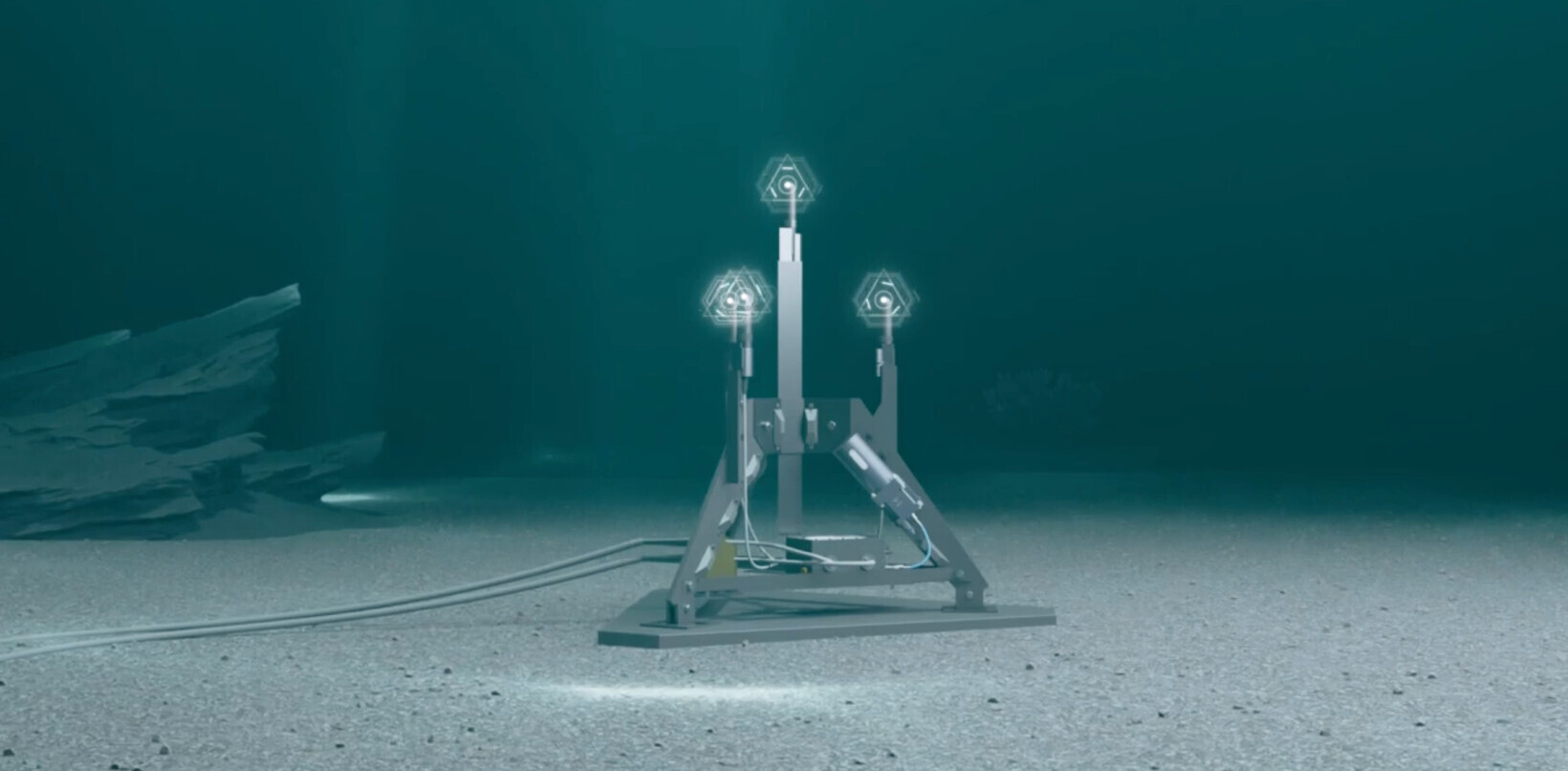
València regularly tops rankings of the best cities in the world, due to its stellar combo of 300-plus annual days of sun, the Med on your doorstep, and a lifestyle that values free time, exercise, and good food. But it’s not all paella and chill.
The Valèncian region’s startup scene — based mainly in its capital plus the smaller cities of Alicante and Castellón — has been revving up in recent years, and is now making its mark in everything from AI, fintech, and cybersecurity, to cleantech, healthtech, and industrial IoT.
With TNW’s first conference in València just around the corner, we rounded up a bunch of leading lights on the local tech scene who have helped to grow the ecosystem over the past decade. Our aim was to get their take on where València’s tech scene is at today, what it’s got going for it, and the challenges ahead.
“I always say that we are in adolescence,” Javier Megias, managing partner of the EMEA VC fund of Plug and Play Tech Center in València, told TNW. “This is a really important moment, where you create your beliefs and the foundations of your life.
“In the next few years everything is going to speed up quite a bit. We are at the tipping point of the change in the ecosystem, going from a regional, quite local ecosystem to something much more ambitious — and much faster.”
València by the numbers
Data shows a tech hub on the up-and-up. According to the Bankinter Foundation’s Startups Observatory, investment in València-based startups grew from €58.5m in 2021 to €73m in 2022. Ecosystem tracking platform Dealroom reports that the Valèncian region has the highest number of startups per capita in Spain.
Research by Startup Valencia found the number of registered startups in the region rose from 1,012 in 2021 to 1,212 in 2022; Dealroom, meanwhile, has an even higher estimate of over 1,500 startups.

València is still light on unicorns but can point to Flywire, the global payments enabler (now headquartered in Boston), as the first Spanish startup to go public on the Nasdaq in 2021, and live-entertainment platform Fever, which became a unicorn last year. Other noteworthy success stories include Jeff, Climate Trade, Voicemod, Sesame HR, and Sales Layer.
The investor scene skews towards local offices, with notable names including Draper B1, Angels Capital, private angel investor network BiGBAN, Demium, and GoHub Ventures, as well as Global Omnium, the world’s fourth-largest water utility. US-based Plug and Play also invests in Valèncian startups, including Climate Trade and Zeleros.
The City of València is also a very active participant in the ecosystems, with a raft of programmes that include València Activa, VLC Tech City, Invest in València, and VIT Emprende.
A bottom-up ecosystem
For Plug and Play’s Megias, the biggest difference between València and other startup scenes is the former’s bottom-up ecosystem.
“It was really built and connected by the founders,” he said. “We are really good at creating efficient companies from the ground up and scaling them to, let’s say, Series A — but we have a challenge to really scale that to the next level and build really big companies, like Flywire, for example.”

More than 30% of all startups in València are two-years old or younger. Almost 30% of all the startups there are pre-seed, and another 30% are seed stage. Just under 10% of them have received Series A funding. Fewer than 1% have secured Series B financing, and the same goes for Series C.
“València’s international community is growing.
Megias says València is becoming a magnet for expats. The reasonable cost of living and the pleasant, manageable city are big attractions, but there are also more international jobs becoming available. Megias’ team, which looks after the EMEA region from central València, is made up of 30 different nationalities, all of whom speak English at work.
“There’s an international community that’s growing because of big companies, like Plug and Play, coming here and attracting them,” said Megias, a cofounder of Startup Valencia, a non-profit that promotes local startups.
One of the key areas for startups in the region is La Marina, which also happens to be the venue for TNW València. The accelerator Lanzadera, TNW’s strategic partner, pioneered the development of a tech strip on the seafront.
Founded in 2013 by Joan Roig, the billionaire owner of the Mercadona supermarket chain, the complex is now home to the EMEA business school, Lanzadera itself and its scaleup space Angels, the Insomnia accelerator, Biohub, and Sesame. Lanzadera, which works under the umbrella of the Marina de Empresas entrepreneurial hub, has accelerated over 1,000 startups so far, and recently took in its first batch of over 100 from Portugal.
This year, another building on the tech strip will open its doors: La Terminal startup hub. The site will provide startups and scaleups with a physical space to interact with each other, corporates, and investors.

Connected for good
The speed of change in València is something that Bianca Dragomir, TNW València advisor and CEO of Avaesen, has witnessed first hand. Her pioneering cleantech cluster in the region is made up of 300 public and private stakeholders, 160 of which are companies in renewable energy, water cycle-and-waste management, and smart cities. Since Dragomir took over what was the first cleantech cluster in Spain in 2013, the organisation has accelerated more than 400 startups.
“When you come here, you get connected immediately.
“València is a very dynamic ecosystem, very diverse, and there are many different industrial sectors that are emerging, and traditional sectors that are shifting towards a new paradigm of sustainability,” Dragomir, a native of Romania, told TNW. “And the beauty of it — every single stakeholder that comes from beyond València says this — is that when you come here, you get connected immediately.”

According to Dragomir, the interconnected nature of the city really boosted the cleantech sector, as startups, corporates, the local government, and eight universities drove intense collaboration and innovation.
“‘Tech for good’ is very appropriate to describe what’s happening, and what has been happening for years already here… it’s a very good differentiation point,” she added.
Attracting the big bucks
Juan Vicén Balaguer, the co-founder and CMO of Zeleros Hyperloop and an advisor to TNW València, feels that the region’s youth brings advantages.

Vicén notes that while the Valèncian ecosystem is young compared to the likes of Paris and Berlin, it has a “freshness” that encourages an open exchange of knowledge and experience between startups.
“Something I think the entrepreneurship ecosystem in València has done well is basically taking advantage of the space [in the whole tech marina area],” he said. When investors come, they often get a tour of all the accelerators and incubators along the Marina.
Attracting large-scale investment, however, remains a challenge. “As of today, if you are thinking of València, you are not coming here to get investment, you are coming here because you find it a good place to start with low rates [for renting office space],” said Vicén.
“We are very good at entrepreneurs bringing new ideas to life but when it comes to investment, there is a gap. That is different in big financial hubs, like London or Paris, where you are in the capital city in the country, and it makes it much easier to do business.”

Investment is also, of course, essential to attract the best talent — and Spain is not known for high salaries. According to Statista’s 2021 data on average full-time salaries in Europe, Spain is in 18th place in the continent. The Zeleros founders, says Vicén, have been “really transparent” with investors about the need to offer salaries that are compeitive with those in Northern European countries.
“Once we have those second-time founders, everything is going to be much faster.
Plug and Play’s Megias agrees, noting that companies in València need to “step up their game” on the salary front, but to do so they must connect with top investors in Europe. As is the case in many European ecosystems, the second generation of founders and employees, who stay and either invest or found new startups, will be essential to the maturation of València’s tech sector.
“Once we have those second-time founders that already have the connections, everything is going to be much, much faster,” said Megias.
From an outside observer’s view, one thing that needs to change is establishing English as a company language in scaleups, which would open up opportunities for international talent and investors. Zeleros, the Plug and Play Tech Center, and a few other organisations already do this. But in general, there is not a huge amount of English spoken here as a matter of course, and not all startups have an English version of their websites.
Nonetheless, the ecosystem has a bright future ahead.
Accelerating growth
Nacho Mas, the CEO of Startup València, predicts that the Valèncian community will become one of the top 10 tech hubs worldwide.
“Despite being smaller than Madrid, we are experiencing faster growth… and we still have room for more,” Mas told TNW.
“All members of our community are working towards a common goal, which gives us a significant advantage,” he added.

Mas noted that the La Terminal project in the Marina, where TNW València will take place, is expected to help attract further investment, talent, and projects into the ecosystem.
“We are ambitious because we have the potential and resources to achieve success,” he said.
Whether or not it end ups as a top 10 global tech hub remains to be seen, but València is definitely powering through its adolescence. If it can attract big investment going forward, the region’s startup sector looks set to explode.
Get the TNW newsletter
Get the most important tech news in your inbox each week.





